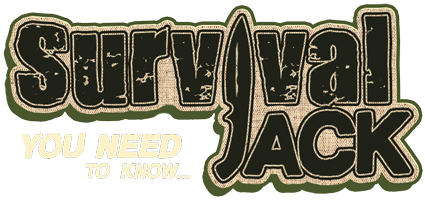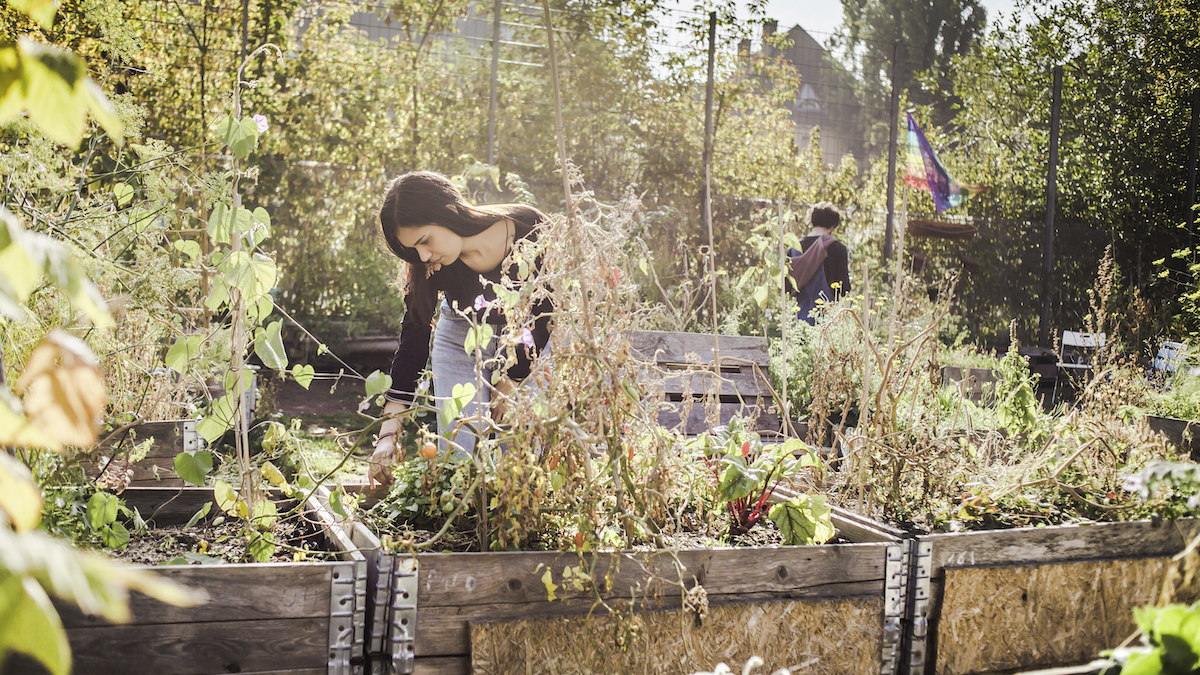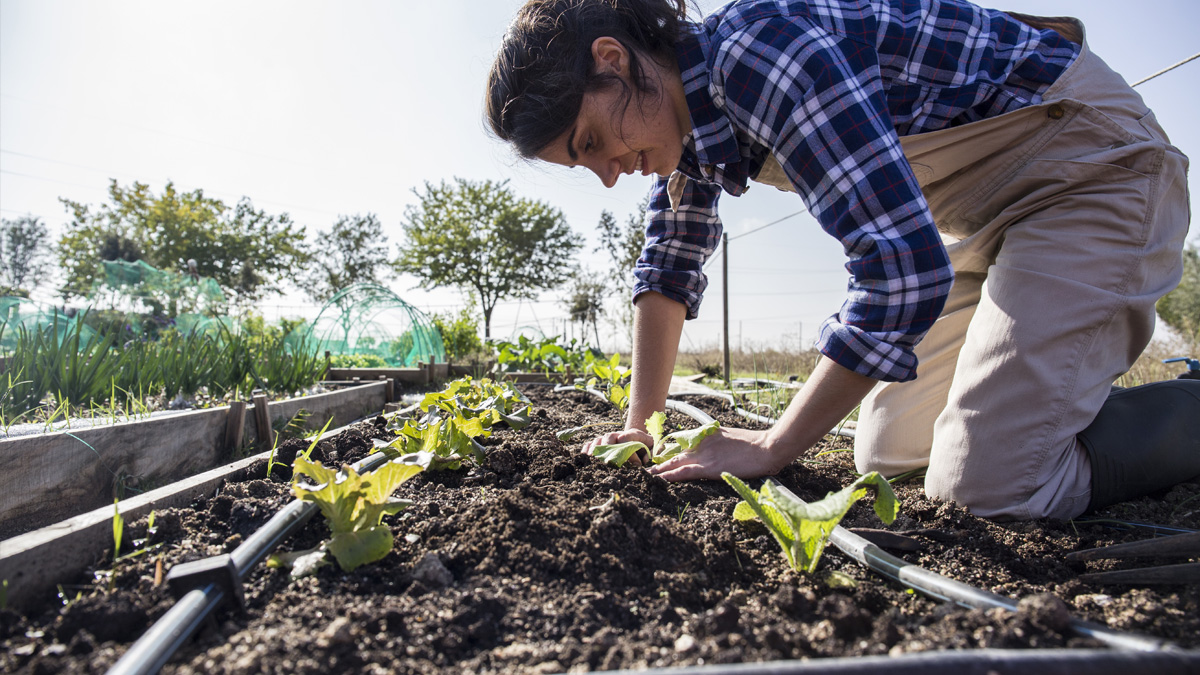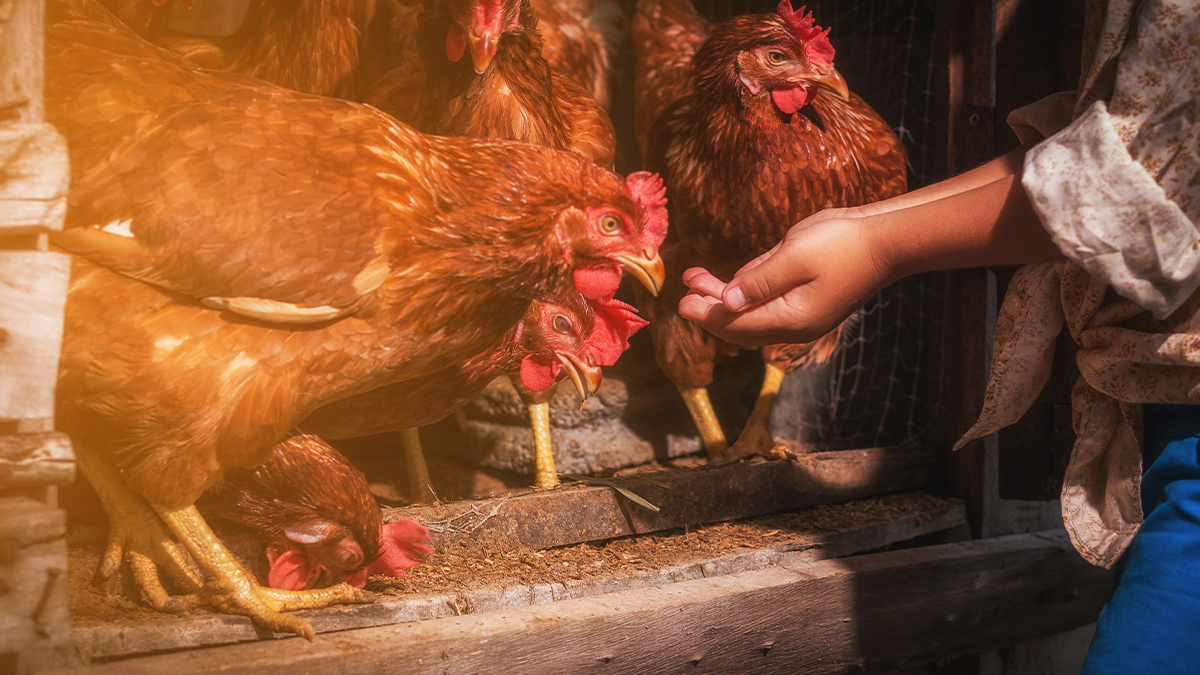on
You may have dreams of living like Laura Ingalls Wilder, but you don’t have acres of land for cows, chickens, and an apple orchard.
Here’s some good news: Just because you don’t have farmland doesn’t mean you have to give up your dream of being a homesteader.
If you live in an urban area (even if you live in an apartment or condominium), you can still create a homestead.
Here are 15 ways you can start an urban homestead.
1. Change Your Mindset
If you want to start an urban homestead, it begins with the right mindset.
You may not have the physical space for a large, traditional homestead, but you do have plenty of space in your mind to start thinking like a homesteader.
Homesteaders strive to live self-sufficiently, minimally, and consciously.
Even without acres of land, you can begin living this way.
Your homestead may look different from those in rural areas, but you can apply many of the same homesteading principles to your lifestyle choices.
2. Plant a Garden
One of the common things all homesteaders do is grow their own food.
You may not have the space for a traditional vegetable garden. So, look for ways to grow your own food using the space you have.
Consider a kitchen garden or windowsill herb garden.
Utilize the outdoor spaces you have, such as creating a rooftop garden or a container garden on your balcony.
See if there are community garden spaces available in your city.
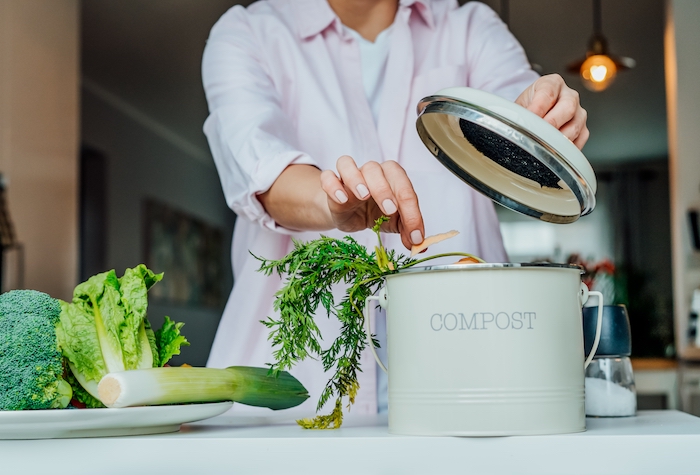
3. Compost
Composting is another common practice for homesteaders. Fortunately, it is easy to do, no matter where you live.
If you want to start an urban homestead, compost indoors in an apartment with a small compost bin. Many urban homesteaders practice vermiculture, or worm farming, for composting.
4. Cook from Scratch
Homesteaders strive to live independently, which means learning how to cook for themselves.
Try to learn how to cook as many meals and foods from scratch as possible.
Make an effort to learn how to bake bread, make yogurt, and create a broth on your own.
Not only is it cheaper, but it will loosen your dependence on grocery stores and restaurants.
5. Preserve Food
In addition to making your own food, learn how to preserve food.
The better able you are to preserve food, the more likely you will have food when needed.
The goal is not to let anything go to waste.
Rather than throw out produce that hasn’t been eaten, find a way to preserve it.
Here are some of the common ways homesteaders preserve food:
- Freezing
- Dehydrating
- Drying
- Canning
- Fermenting
- Pickling
[Related Read: The Art of Fermenting and Pickling]
6. Make and Mend
Homesteading often involves thinking like those who came before us.
How did people survive during The Great Depression or during World War I? They made do with what they had. And if those things broke, they fixed them.
Start practicing this yourself. Learn to sew and make and mend your own clothes. Master basic handyman skills.
7. DIY Cleaning Supplies
Try to shop less and make your own more.
An easy way to put this into practice is with cleaning supplies. Instead of purchasing cleaning supplies from the store, make your own.
There are many different DIY cleaning products that work just as well and are significantly cheaper.
You’ll be amazed at what you can make with pantry staples, such as baking soda and vinegar.
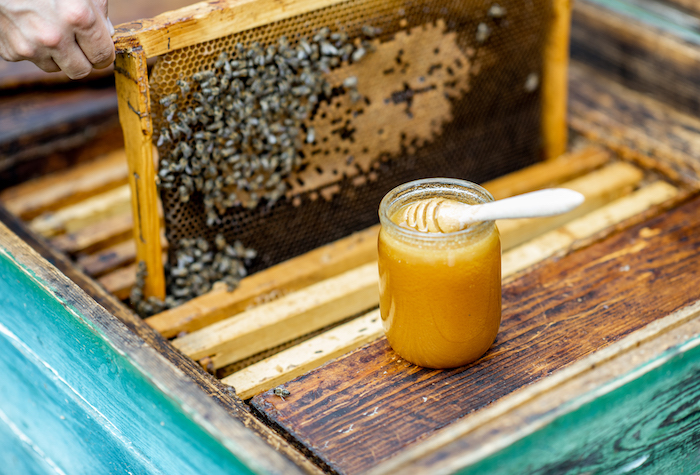
8. Raise Bees or Chickens
When people think of homesteading, they tend to think of raising animals.
Unfortunately, it is much harder to raise animals if you live in an urban environment.
However, that does not mean it is impossible.
For example, some apartment dwellers in New York City have been raising chickens indoors, which is legal.
Check your city’s codes to see which animals are allowed and any regulations they have (such as no roosters).
If you can’t raise livestock, consider raising bees. Many urban environments are more open to beekeeping, specifically on rooftops.
9. Collect Rainwater
If you want to start an urban homestead, collect rainwater.
Even if you don’t have space for a large rain barrel, you can collect rainwater using plastic jugs. Then, you can reuse this water around your home.
10. Support Local Farmers
While you may not be able to grow a huge vegetable garden, you can still enjoy fresh local produce.
Head to your local farmers’ market to stock up on produce that is in season. Get to know your local farmers and see if they offer produce boxes.
11. Share a Cow
As an urban homesteader, you won’t have the space for cattle. That doesn’t mean you can’t enjoy the benefits of a cow share.
A cow share allows you to buy a “share” of a cow. You pay a farmer to care for the cow and milk the cow. Then, you get the fresh milk from “your cow.”
In addition, you can buy portions of a cow direct from a rancher.
For instance, you can go in with your extended family to buy bulk meat, such as a whole cow. The cow is then butchered, and the various cuts are distributed to those who bought in.
You’ll be supporting your local farmers and ranchers while stocking your freezer with meat directly from the ranch.
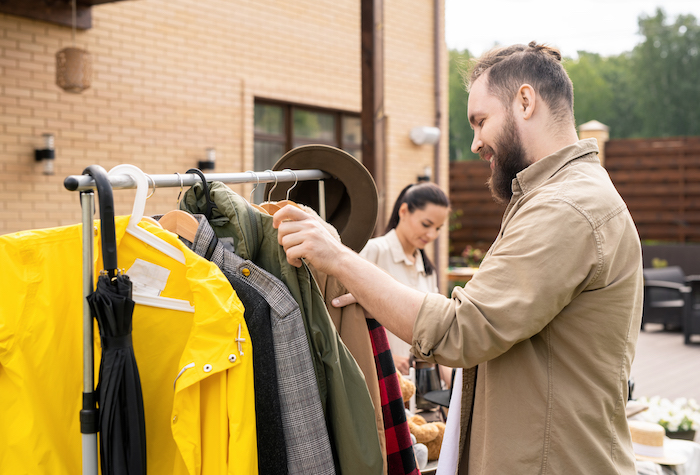
12. Buy Secondhand
Homesteaders fight against consumerism. You can practice this no matter where you live!
Instead of purchasing fast fashion, buy clothing secondhand from thrift shops or consignment shops.
When you are in need of an item for your home, search through online yard sale sites.
13. Forage
Learn how to forage for food. Even urban areas have green spaces that offer foraging opportunities.
Be on the lookout for public fruit trees. Check out FallingFruit.org to find maps of places to forage for wild edibles and glean from fruit trees.
14. Decrease Energy Usage
Homesteaders aim to be self-reliant. If the grid goes down, homesteaders want to know they can survive.
One way to practice this philosophy in urban areas is to simply decrease your energy usage.
Hang your clothes to dry. Open your windows instead of running your air conditioning. Turn lights off when not needed.
15. Find Community
Homesteading is growing in popularity, so it is unlikely you are the only homesteader in your urban area.
Search for other urban homesteaders to form community.
You may even come together to bring your bigger homesteading dreams to life.
Consider this example from Mother Earth News: “In a single year, six households working with the organization Daily Acts in Petaluma, Calif., produced more than 3,000 pounds of food; foraged 2,000 pounds of local fruit; collected more than 4,000 pounds of urban organic waste to be used as compost and mulch; planted more than 185 fruit trees; installed five greywater and rainwater catchment systems that saved tens of thousands of gallons of water; tended to bees, chickens, ducks, quail and rabbits; and worked to reduce energy use and enhance public transportation opportunities. All of this from six households!”
Don’t let the size of your space keep you from pursuing your homesteading dreams.
Get access to premium content and more!
13 Ways to Get Chickens Ready for Winter
